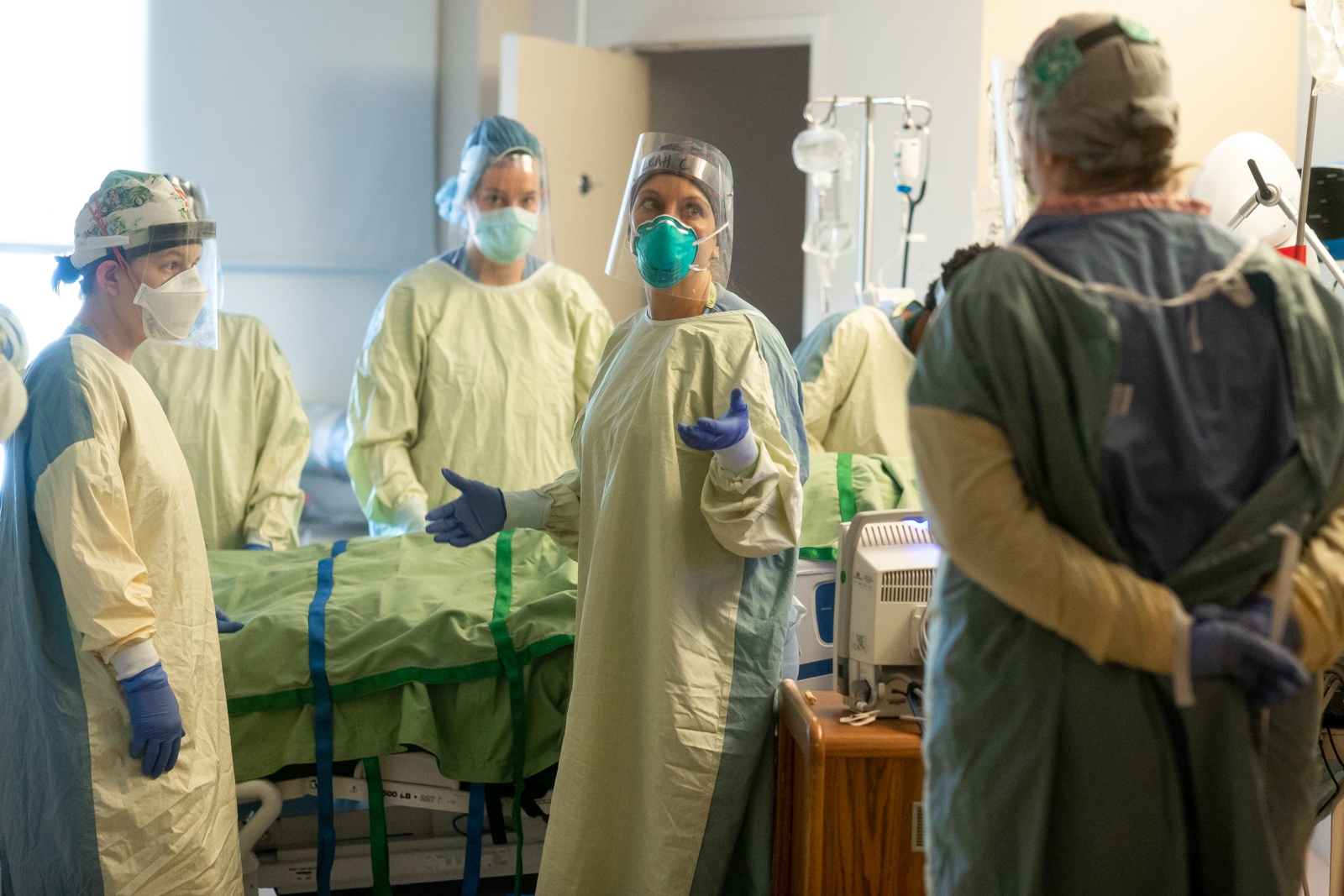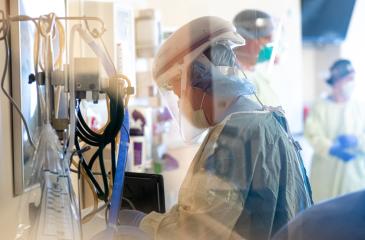When healthcare system M Health Fairview converted Bethesda into a COVID-19 hospital, they sought to integrate research into its clinical care and recovery efforts. Research, afterall, is the path forward in this global pandemic, and the St. Paul hospital that cares exclusively for COVID-19 patients is uniquely suited to contribute.
M Health Fairview teamed up with the Clinical and Translational Science Institute (CTSI), building on their long-standing collaboration as UMN partners. As the virus began to emerge in Minnesota, they immediately turned their attention to pursuing innovative ways to thoughtfully engage Bethesda patients in the research process and optimize the way COVID-19 studies are conducted.
Building a research infrastructure at a COVID-19 hospital
Together, the partners built a robust infrastructure for COVID-19 research. This addresses training, consenting, and start-up support, and ensures patients can continue contributing to research after they’ve been discharged. Along the way, they confronted the virus’ unique challenges and worked to streamline and enhance research processes.
“We’re broadening the reach of CTSI’s expertise and resources to advance the COVID-19 research the world is counting on,” explains Daniel Weisdorf, MD, CTSI’s Deputy Director and Clinical Translational Research Services (CTRS) core Director. One way CTSI leadership is doing this is by participating in the M Health Fairview system research huddle call twice a week to help remove barriers and provide support as needed.
The collaboration has accelerated engagement and impact in real and important ways, says Brad Benson, MD, FACP, FAAP, Chief Academic Officer for the M Health Fairview academic health system reporting to the Dean of the UMN Medical School:
“In recognition of the importance of our research mission, we set a system key performance indicator (KPI) goal of 3,750 clinical trial accruals in 2020, which we surpassed after just five months at the end of May. This demonstrates the success of this collaboration, and we are committed to this path for continued growth in our reach and impact.”
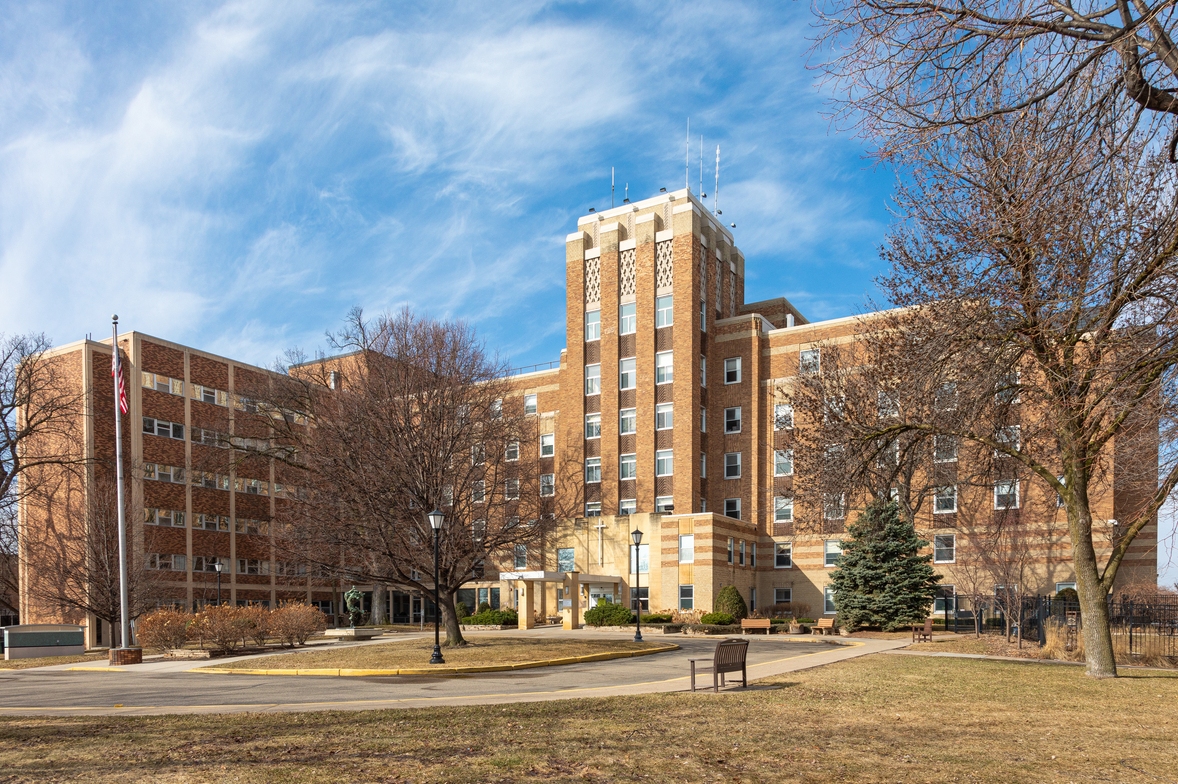
Training clinical staff on research
Bethesda’s hospital workers did not necessarily have clinical research experience, so CTSI and M Health Fairview teamed up with the UMN Human Research Protection Program (HRPP) to create a “Clinical Research 101” training video.
The 13-minute video helps healthcare workers better understand key research concepts and how they might engage in the research process. It addresses topics such as the role of healthcare workers in research, the difference between clinical care and human research, specimen collection, and other essential aspects of clinical research, such as protocols, informed consent, and inclusion and exclusion criteria.
The video was created specifically for Bethesda clinical staff and has been part of the training process ever since the early days of COVID-19 in Minnesota. CTSI provided content and narration for the video, which has also been distributed in PowerPoint format.
Consenting electronically
Properly getting the consent of sick, hospitalized, and isolated patients to join a clinical trial is a challenge, especially when in-person interaction isn’t an option. Plus, many COVID-19 patients are incapacitated. In those cases, a legally authorized representative—who is often remote—must consent on their behalf. Every interaction must happen over the phone or online to protect everyone’s safety and patient privacy.
The COVID-19 inpatient population has included a significant volume of non-English-speaking patients, requiring additional training of research teams to provide remote consenting utilizing interpreters.
Validating eConsent
Fortunately, IRB-approved COVID-19 studies can now obtain study participants’ consent using electronic signature, thanks to a recent effort to validate REDCap’s electronic consent (eConsent) capabilities for FDA compliance purposes.
Rather than collect signatures through paper forms, eligible study teams can collect participant signatures electronically via an online survey created in REDCap. This provides an efficient, safe, and compliant way to obtain informed consent to support critical COVID-19 research.
CTSI led the compliance validation process, which became a collaborative effort with the IRB and other individuals across UMN. A 25-person team worked rapidly to validate REDCap in just 10 business days—a process that typically takes months.
CTSI also contributed regulatory and IT expertise to write new standard operating procedures, develop electronic consent templates, and conduct validation. This will pay off even more broadly as this expedited process is expanded to other research projects underway at M Health Fairview and UMN. This CTSI process leveraged the validation effort and materials shared by Vanderbilt University, another CTSA hub.
Streamlining research efforts
“Without full part 11 compliance, we would not have been able to use eConsent for our COVID-19 clinical trials,” says Abbey Staugaitis, MSN, RN, CCRC, a project manager for two multi-center studies that are determining whether a blood pressure medication called losartan can help alleviate the severity of the disease. The losartan clinical trials are recruiting participants at more than 15 centers around the country, including Bethesda and Hennepin County Medical Center, a safety net hospital that’s part of Hennepin Healthcare, a UMN CTSA hub partner.
Another CTSI-supported research project is creating a COVID-19 biobank that can be used by researchers across UMN. To do this, the project team collects and houses specimens from patients infected with the novel coronavirus, using eConsent to get patients’ permission without interfering with the critical clinical care that patients receive.
A centralized biobank accelerates the research process while making the most of patients’ involvement. By contributing to the COVID-19 biobank, Bethesda patients and other individuals can contribute to multiple COVID-19 studies that accelerate the understanding of SARS-CoV-2 pathogenesis and the development of effective diagnostic and therapeutic strategies.
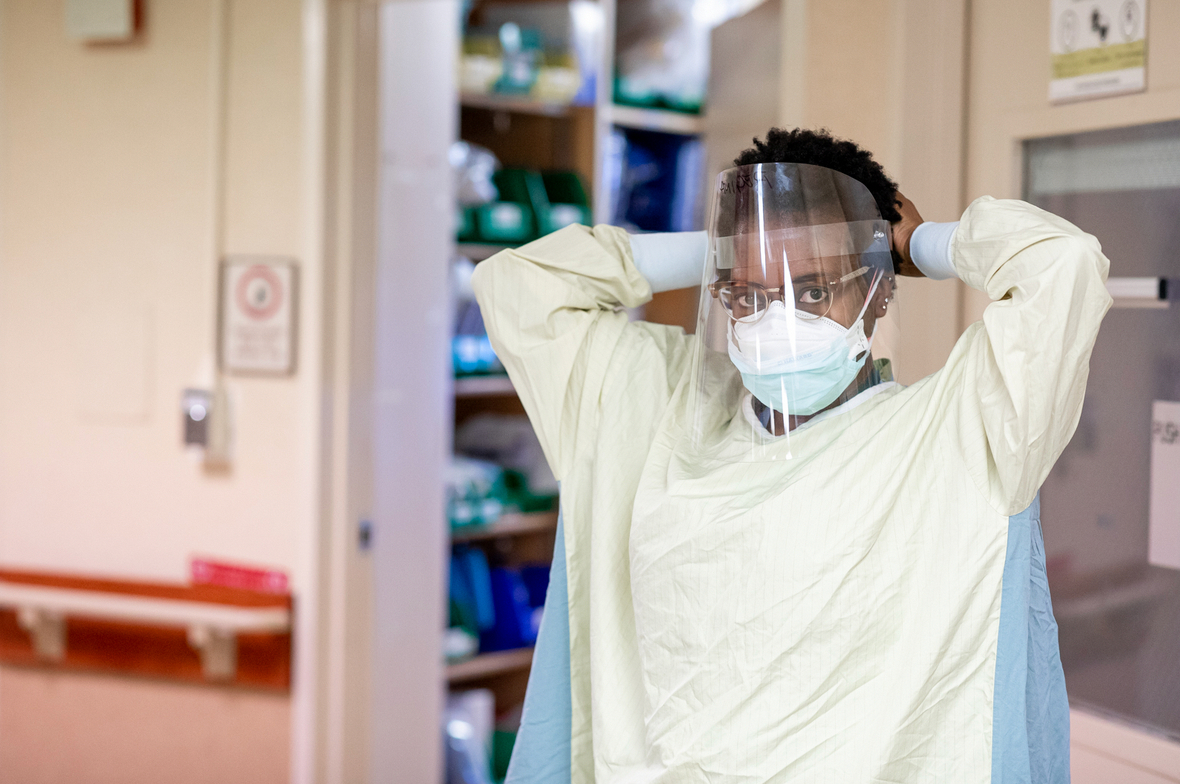
Providing expert support to Bethesda studies
Ever since the first COVID-19 research ideas emerged at the University of Minnesota, CTSI’s clinical research specialists have been teaming up with M Health Fairview’s research teams to help to lift Bethesda studies off the ground. Bringing all areas of expertise to the table has helped move the research forward quickly and established new processes that will continue to help all aspects of UMN and M Health Fairview research efforts.
Together, they’re helping researchers make the leap from study concept to initiation, blending their expertise in both clinical research and the research environment straddling UMN, M Health Fairview, and Bethesda. This helps studies get started quickly, with realistic plans and protocols for implementing the study in a challenging COVID-19 research environment.
The COVID-19 Biobank is one example: CTSI clinical research specialists helped the biobank go from concept to IRB-approved protocol in less than 13 days.
They’re also helping validate a new way of diagnosing COVID-19. Bethesda patients are helping determine whether a breath sensor device could non-invasively detect the presence of the virus within minutes (and without a swab). CTSI clinical research and regulatory specialists helped finalize the protocol, assisted with study planning, coordinated logistics, wrote the informed consent form, and handled the IRB submission. They assisted this study effort in collaboration with the study team, which included the UMN Department of Surgery, Boston Scientific, UMN Earl E. Bakken Medical Devices Center, and other UMN departments.
Another CTSI-supported study aims to better understand the emotional, mental health, and physical symptom experience of COVID-19 patients after discharge from Bethesda and other M Health Fairview hospitals. The study is a collaboration between the UMN School of Nursing and M Health Fairview nursing, with CTSI clinical research specialists navigating the study start-up process with the M Health Fairview team and advising on the protocol and regulatory compliance. The study also received funding through CTSI’s COVID-19 Rapid Response Seed Grant program, which is helping to make the research possible.
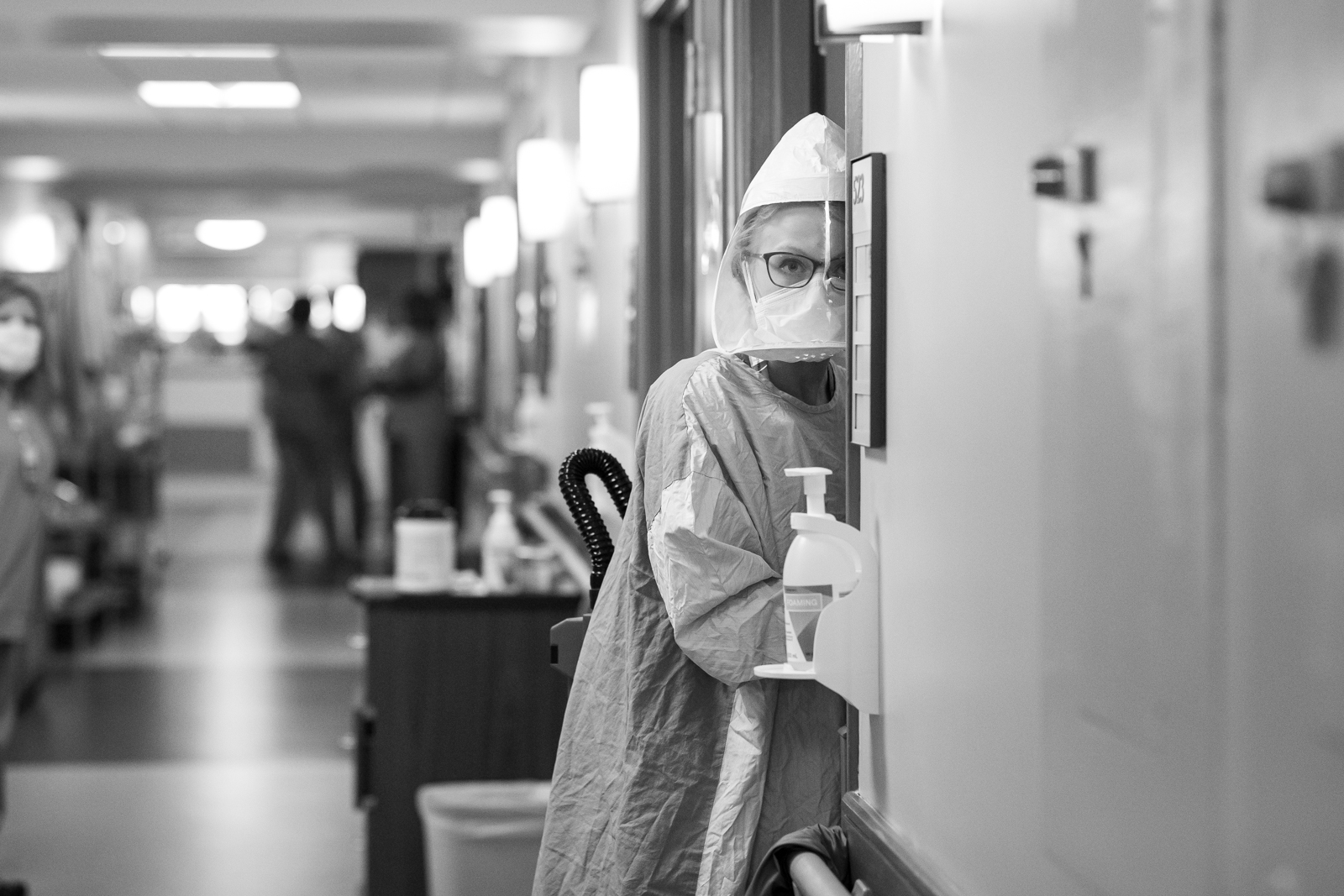
A drive-through that eases research participation
When patients are discharged from Bethesda, they still have a safe, convenient way to continue participating in studies.
That’s because UMN created a drive-through for tests and simple procedures like blood draws. Participants simply drive their car into the parking garage underneath CTSI’s offices, step out for the procedure, and then drive back out when they’re done.
This lessens the burden for Bethesda and other healthcare facilities, while reducing the risk of spreading the virus to others. A drive-through also enables studies to recruit other COVID-19-positive patients or individuals suspected of having the virus. Without the drive-through, UMN researchers would not have been able to engage more participants and collect these data.
Several teams across UMN—the Medical School, facilities management, the M Health clinical research unit, CTSI, and others—collaborated to get the drive-through ready in just five business days. UMN CTSI supported those planning efforts and continues to provide operational leadership.
Creating data access
Bethesda patients can continue expanding researchers’ understanding of COVID-19 long after they’ve recovered, thanks to a collaboration between the M Health Fairview data analytics team and the CTSI’s Best Practices Integrated Informatics Core (BPIC) team to create the COVID-19 registry that houses patients’ electronic medical records.
The COVID-19 Registry houses the data of patients with the novel coronavirus as well as those with related conditions and symptoms, for both Bethesda and other hospitals and clinics. The registry protects patients’ privacy and uses best practices for securing, managing, and provisioning researchers’ access to data.
Ultimately, the registry gives UMN researchers a fast, efficient way to access this data to study COVID-19 and identify potential treatments. A single repository that serves the needs of many researchers creates efficiencies, as does having consistent definitions of COVID-19 variables and associated information. Now that CTSI informatics experts have defined the variables and confirmed the enabling collaborations, they can be reused across dozens of studies, further accelerating research that could benefit from the data.
More than 30 UMN studies already depend on the data for their research as of mid-June 2020. By creating this registry, CTSI is making these projects possible.
CTSA researchers around the country can use this data as well, as the registry will be sending de-identified data to the NCATS-funded National COVID Cohort Collaborative (N3C). By creating a centralized, secure enclave for medical record data, the effort aims to transform clinical information into knowledge urgently needed to study COVID-19, such as to identify health risk factors and potentially effective treatments.
Optimizing COVID-19 research
The partners’ innovative research infrastructure is ultimately increasing the quality and efficiency of COVID-19 research, explains Dr. Weisdorf:
“Making an impact during a global pandemic requires new ways of thinking and doing. By embracing innovation with a clinical partner, we overcame the virus’ unique challenges and found ways to conduct research that serve patients and researchers alike. This is what’s making life-saving COVID-19 research possible.”
Ultimately, this model will help many research efforts and many more patients.
